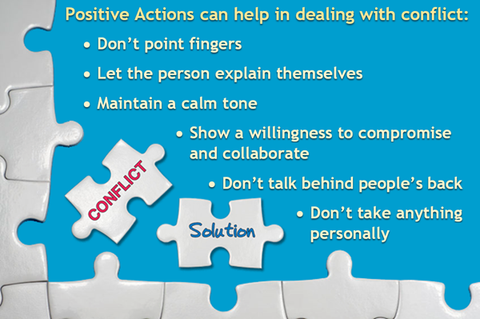
Conflict management is the practice of being able to identify and handle conflicts sensibly, fairly and efficiently. The teacher, counselor, or youth workers role in helping at-risk youth resolve conflicts is to listen. Listening empowers the youth to take ownership of the conflict.
The first step in resolving conflict is clarifying the source. Defining the cause of the conflict will enable youth to understand how the issue came to grow. You need to get both parties to agree what the disagreement is.
5 Strategies for Managing Conflict in a Classroom Setting
- Acknowledge Emotions: “I see you are upset”, or “I understand that this is a powerful topic for you”. Encourage discussion on the topic individually or as a group.
- Communicate: Open communication is key in a dispute.
- Actively Listen: Listen to what the person has to say without interrupting.
- Review Options: Talk over the options, look for solutions that benefit everyone.
- End with a win-win solution.
An important life skill that at-risk youth need is conflict resolution and managing anger. If you are a teacher, counselor, or juvenile justice professional consider ARISE Foundation’s evidenced based life skills curriculum that helps at-risk youth deal with anger and conflict in their life.

